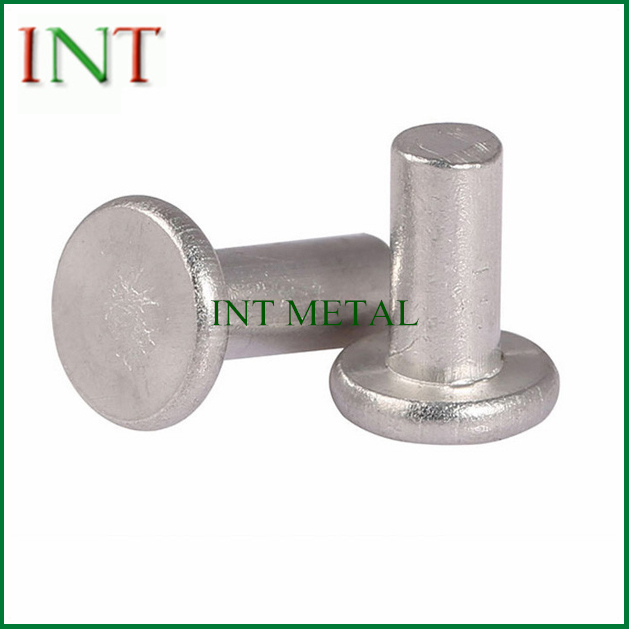Unrivaled Advantages: The Case for Aluminum Rivets in Engineering Excellence
2023-11-30
Introduction:
In the dynamic world of fastening solutions, the choice of materials plays a pivotal role in determining the success of a project. Aluminum rivets stand out as versatile, reliable, and, in many scenarios, preferable over other materials. In this blog, we delve into the distinct advantages of using aluminum rivets and highlight the scenarios where they outshine other fastening options, contributing to engineering excellence across various industries.
1. Lightweight Advantage:
The inherent lightweight nature of aluminum rivets is a significant advantage in scenarios where weight is a critical consideration. In industries such as aerospace and automotive, where every ounce matters, aluminum rivets provide a compelling solution without compromising on structural integrity.
2. Corrosion Resistance for Longevity:
Aluminum's natural resistance to corrosion is a key advantage, especially in applications exposed to the elements. Unlike ferrous materials, aluminum does not rust, making it an ideal choice for outdoor structures, marine environments, and projects where longevity is paramount.
3. Ease of Installation for Efficiency:
Aluminum rivets offer unparalleled ease of installation. Whether using hand tools, pneumatic riveters, or hydraulic systems, the simplicity and efficiency of installing aluminum rivets contribute to faster assembly processes. This advantage is particularly valuable in manufacturing and construction scenarios where time is of the essence.
4. Electrical Conductivity in Specialized Applications:
For applications requiring electrical conductivity, such as in electronics or electrical enclosures, aluminum rivets shine. Their excellent conductivity and non-magnetic properties make them an advantageous choice where electrical connections are critical.
5. Adaptability through Alloy Variations:
The versatility of aluminum alloys allows for adaptability in various scenarios. Engineers and manufacturers can choose from a range of aluminum alloys, tailoring the material to meet specific strength, hardness, and corrosion resistance requirements for different applications.
6. Cost-Effectiveness in Budget-Conscious Projects:
Aluminum rivets are often more cost-effective than alternative materials. The affordability of aluminum, coupled with its performance advantages, makes it an economical choice for projects where cost considerations are a driving factor.
7. Aesthetic Appeal in Design-Centric Applications:
In applications where aesthetics matter, such as architectural structures or consumer products, the natural luster and appearance of aluminum add an aesthetic appeal. Aluminum rivets contribute to a modern and sleek design, enhancing the visual appeal of the finished product.
8. High Strength-to-Weight Ratio for Structural Integrity:
Despite being lightweight, aluminum rivets boast a high strength-to-weight ratio. This advantage is particularly beneficial in scenarios where maintaining structural integrity is crucial but minimizing overall weight is a priority, as seen in aircraft construction or lightweight structures.
Conclusion:
The advantages of using aluminum rivets over other materials are evident across a spectrum of scenarios. From aerospace engineering to marine applications, and from electrical enclosures to architectural design, aluminum rivets demonstrate their versatility, reliability, and cost-effectiveness. As industries continue to prioritize lightweight materials, corrosion resistance, and sustainable practices, aluminum rivets emerge as a beacon of engineering excellence, contributing to the success of diverse projects with their unique set of advantages.



